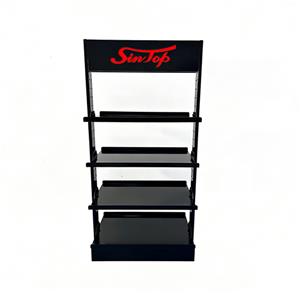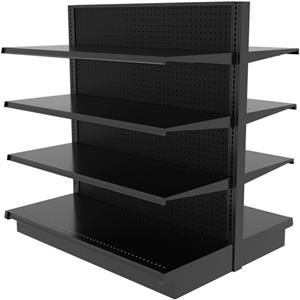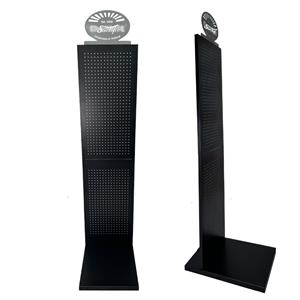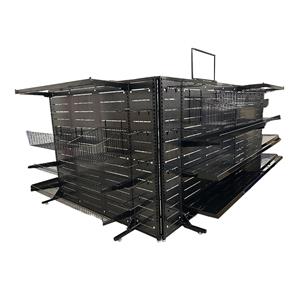Are Biodegradable Display Racks Fit for Retail Chains?
Are Biodegradable Display Racks Fit for Retail Chains?
Table of contents
1)Introduction
2)Performance Breakthroughs and Limitations of Biodegradable Materials
3)Core Challenges in Commercial Adoption
4)Phased Implementation Strategies
5)Future Technology & Policy Drivers
6)Implementation Roadmap for Retailers
7)Business Tools for Risk and ROI
8)Sintop Value
As sustainability becomes a global priority, the retail industry is undergoing a revolution in materials. Market research predicts the value of sustainable display racks will grow from $2.8 billion in 2023 to $4.9 billion by 2028. This transformation directly impacts the development of creative store displays, supermarket gondola shelving, and innovative store fixtures, especially in how they adopt biodegradable materials for future-proofing retail operations.
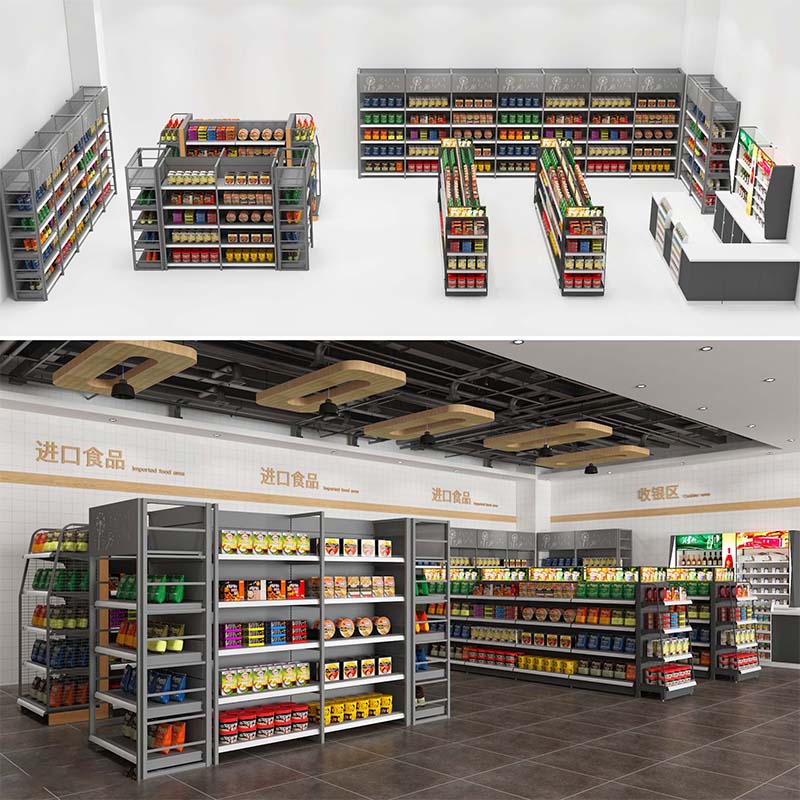
1. Performance Breakthroughs and Limitations of Biodegradable Materials
1.1 Biodegradable Material Comparison for Store Fixtures
Material Type Strength (MPa) Moisture Resistance Cost Index Application
PLA Polylactic Acid 50–70 Poor 1.8x Lightweight creative store displays
Bamboo Fiber 60–90 Medium 2.2x Fashion racks, innovative store fixtures
Mycelium 40–60 Good 3.5x Pop-up creative store displays
Enhanced Starch 70–100 Medium 2.5x Supermarket gondola shelving
1.2 Key Gaps Compared to Traditional Fixtures
Load-bearing: Top biodegradable materials are only 20% as strong as traditional steel used in supermarket gondola shelving.
Durability: Usage lifespan is 60–70% shorter.
Environment resistance: 80% of these materials are unsuitable for refrigerated or high-humidity zones, making them risky for certain innovative store fixtures.
2. Core Challenges in Commercial Adoption
2.1 Cost-Benefit Analysis in Retail Display Systems
ItemTraditional FixturesBiodegradable FixturesDifference
Cost per Set$200$450+125%
Lifespan8–10 years2–3 years-70%
Annual Maintenance$20$80+300%
Residual Value30%0%-100%
2.2 Supply Chain Challenges
Only 12% of manufacturers support biodegradable creative store displays.
Customizable supermarket gondola shelving in biodegradable formats takes 3–5 weeks longer to deliver.
Transition costs for innovative store fixtures are 40–60% higher.
2.3 Consumer Misconceptions
67% overestimate the lifespan of green displays.
Only 23% are willing to pay more for creative store displays made from eco-materials.
42% of retailers found no sales increase from their green claims, especially in supermarket gondola shelving.
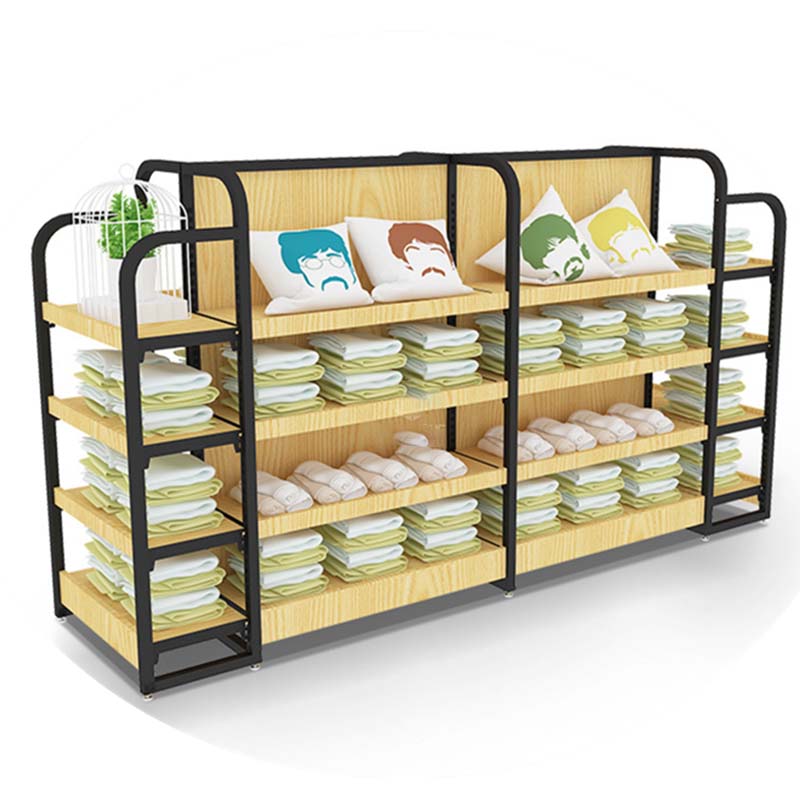
3. Phased Implementation Strategies
3.1 Ideal Application Scenarios
graph TD
A[Most Suitable] --> B[Pop-up stores and short-term promotions]
A --> C[Luxury zones]
A --> D[Organic food displays]
E[Moderately Suitable] --> F[Decor in clothing stores]
E --> G[Impulse **creative store displays** near checkout]
H[Not Recommended] --> I[Refrigerated areas]
H --> J[Bulk goods main **supermarket gondola shelving**]
3.2 Hybrid Fixture Strategy
To balance sustainability and durability:
Use metal frames for load-bearing structure.
Use biodegradable panels for visible surfaces in creative store displays.
Connect components using recycled plastic.
This setup retains 85% of functionality while reducing carbon emissions by 45%, suitable for innovative store fixtures.
3.3 Lifecycle Innovation
Develop a modular upgrade system.
Enable remanufacturing and return flows for supermarket gondola shelving.
Launch rent-to-own options to reduce upfront risk for creative store displays.
4. Future Technology & Policy Drivers
4.1 Upcoming Innovations (2025–2027)
Nano-enhanced materials: Boosts strength to 80% of steel-based supermarket gondola shelving.
Self-healing coatings: Doubles the lifespan of innovative store fixtures.
On-demand degradation: Triggers eco-decomposition at end of use.
4.2 Regulatory Influence
EU’s Retail Sustainable Materials Act (2026) will cover creative store displays.
China's dual-carbon targets to include innovative store fixtures.
Some US states plan taxes on traditional retail shelving, making biodegradable supermarket gondola shelving more attractive.
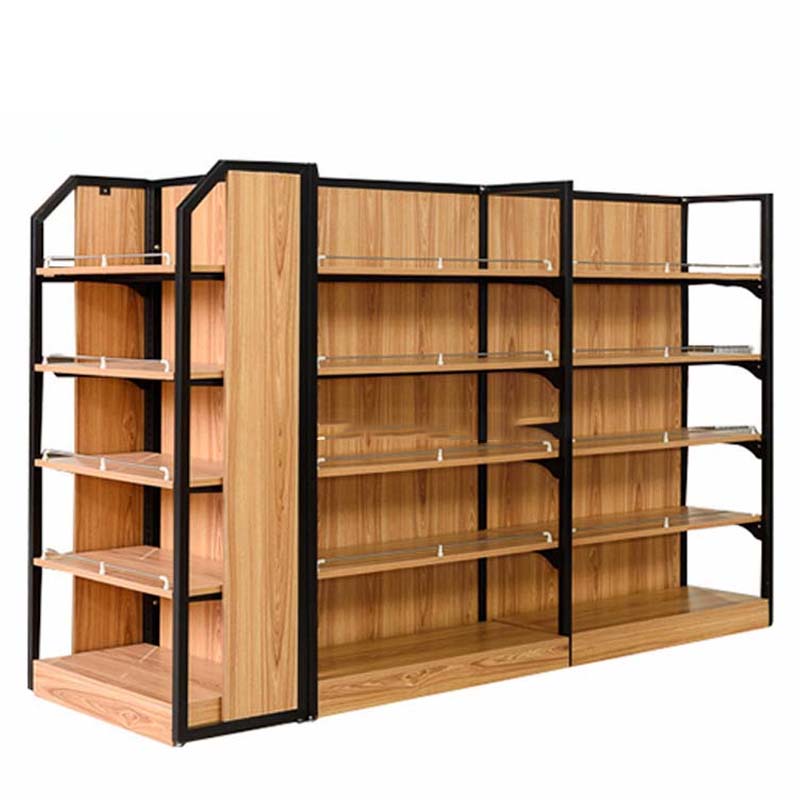
5. Implementation Roadmap for Retailers
Short-term (0–1 year):
Test biodegradable racks in 5–10% of creative store displays.
Train staff on handling new materials.
Vet suppliers for innovative store fixtures.
Mid-term (2–3 years):
Standardize hybrid supermarket gondola shelving.
Improve ROI models for sustainable displays.
Launch eco-display branding campaigns.
Long-term (5+ years):
Scale biodegradable adoption across all display categories.
Close the loop with recycling logistics.
Help define global creative store displays sustainability standards.
Business Tools for Risk and ROI
Cost Recovery Calculator:
ROI = (Investment Difference) ÷ (Annual Savings + Brand Impact)
Risk Matrix for Fixture Replacement:
RiskLikelihoodImpactCountermeasure
BreakageMediumHighHybrid design
Perception gapHighMediumClear signage
Supply delaysLowVery HighDual-source vendors
“Sustainable transformation is not a choice—it's a retail imperative. But transition must be smart, strategic, and commercially sound.” — Maria Chen, Chairwoman, Global Retail Sustainability Alliance
Biodegradable fixtures can evolve from eco-symbols to retail standards. With a smart plan, your creative store displays, supermarket gondola shelving, and innovative store fixtures can lead the sustainable retail revolution.
Sintop Value
At Sintop, we embrace sustainable innovation without compromising functionality. Our hybrid display solutions combine durability and eco-conscious materials, ensuring retailers meet green goals while maintaining display performance. With our deep experience in custom creative store displays and supermarket gondola shelving, we guide businesses through smart, phased transitions toward sustainable retail environments.

Contact information
Website: www.sintopfixtures.com
Wechat/WhatsApp: +86 15980885084
Email: elly@xm-sintop.com
FAQ
1. What are store fixtures?
Store fixtures are essential equipment and furniture used in retail spaces to display, organize, and store merchandise. Examples include shelving units, racks, display cases, counters, and hooks.
2. Why are store fixtures important?
Store fixtures enhance the shopping experience by organizing products, improving accessibility, maximizing space, and creating appealing displays that attract customers and boost sales.
3. What types of store fixtures are commonly used?
Common types of store fixtures include:
Shelving Units(wall shelves, free-standing shelves, adjustable shelving)
Display Cases (glass cases, countertop cases)
Racks (clothing racks, display racks)
Counters (checkout counters, service counters)
Hooks and Pegboards
End Caps
Signage and Graphics
Mannequins
4. How do I choose the right store fixtures for my retail space?
Consider your merchandise type, store layout, and branding needs. Fixtures should be functional, complement your store's design, and fit within your budget. Evaluate your space to determine the best fixture types and configurations for optimal product presentation and customer flow.
5. Can store fixtures be customized?
Yes, many store fixtures can be customized to align with your store's branding and specific needs. Customization options include materials, colors, sizes, and designs. Collaborating with a fixture supplier or designer can help create fixtures that match your store’s style and functional requirements.
6. How can I maximize space with store fixtures?
Utilize fixtures that optimize vertical space, such as wall-mounted shelves and tall display racks. Modular and adjustable fixtures can adapt to changing merchandise or store layouts. Plan your store layout carefully to ensure efficient use of space and smooth customer flow.
7. How do I maintain store fixtures?
Regularly clean and inspect fixtures to ensure they remain in good condition. Check for wear and tear, and repair or replace damaged parts. Follow manufacturer guidelines for maintenance and cleaning to extend the lifespan of your fixtures.
8. Can store fixtures be used for different types of retail stores?
Yes, store fixtures can be adapted for various retail environments, including clothing stores, electronics shops, grocery stores, and more. The choice of fixtures depends on the specific needs and merchandise of the store.
9. How can store fixtures improve the customer experience?
Well-designed fixtures make products easy to find and browse, enhancing the overall shopping experience. Effective use of fixtures creates an organized, aesthetically pleasing environment that encourages customers to spend more time in the store.
10. Where can I purchase store fixtures?
Store fixtures can be purchased from specialized fixture suppliers, retail equipment stores, or custom fixture manufacturers. Online retailers and local suppliers also offer a wide range of options.

